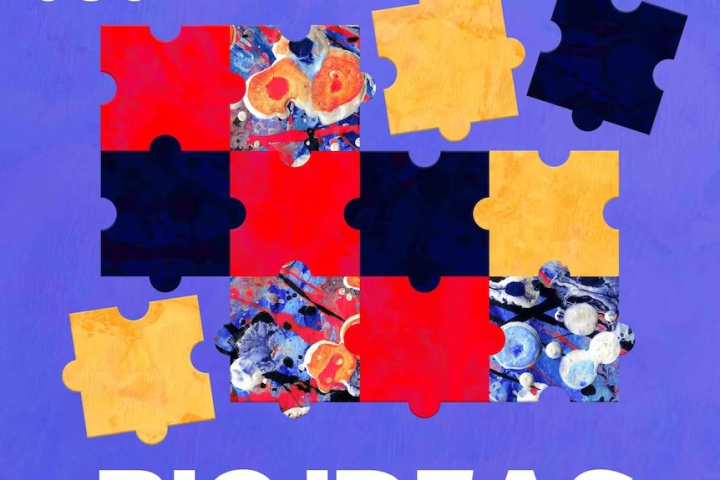By Iain Walker, March 14, 2024, published by the Jerusalem Post.
Prime Minister Benjamin Netanyahu receives regular criticism for failing to share the plan for Gaza after the military role concludes. The lack of an official position on this subject could stem from the fact that all over options are unattractive, and so a new approach is required.
Israel as an occupying force is undesirable, it would draw global criticism and simply push off the problem to a later date.
Equally, traditional electoral democracy is an unworkable option.
With polls reflecting up to 80% support for Hamas among Gaza residents, elections would only allow for some incarnation of Hamas to emerge newly empowered – an untenable situation following its acts of terror targeting civilians.
Such is the nature of elections: a limited menu of choices is put to a population in a contest of slogans rather than long-term solutions. The election process creates very clear incentives for candidate behavior, and in this case those incentives will be incendiary.
Look around the world: elections do not lead to harmony in society. Instead, they are a primary source of much of our division through a tone of debate which also paralyzes our democracies. They give concentrated power to a small group of people who benefit from amplifying division and demonizing rivals in order to win and retain office. In the West it is causing fractures; but in a society crippled by a debilitating war and ongoing heightened regional tension it is unfathomable to suggest that this method of democracy contributes to stability.
The prime minister should be encouraged to consider a third option: democracy without elections. Democracy does not simply equate to holding elections; elections are simply one method of delivering a representative group of people. Yet, surprisingly to many, they were not used in the democracy born in Athens 2,500 years ago. Athenian democracy foresaw this problem, and instead used a simple random draw among citizens (known as “sortition”).
Democracy without elections in Gaza
Using this approach in Gaza would see 50 people from all walks of life randomly-selected to form a Council of Citizens to provide governance and government. Unlike elections, it avoids the skew to people with certain narrow backgrounds and brings together a more representative group of people with everyday jobs.
Having a single fixed term after which a new group is selected by lottery allows for decision-making grounded in judgment, rather than concern for the optics of what will earn them re-election.
Election campaigns require money, which never comes without strings attached and frequently from dubious sources. This democratic method removes that compromise entirely.
How would this work in practice? Those 50 people would be tasked with finding a common ground agreement, with at least 80% support required for a decision. They would identify ministers to serve in portfolios by the same process – reviewing nominations from qualified individuals and selecting the one they trusted as a group. If I told you that 50 people picked at random agreed that a given person was the right one to lead a health or infrastructure authority, would you trust them more or less than a political appointment? Around the world, politicians are among the least trusted people. The most trusted are people like ourselves, who we encounter in our daily lives, and that is the group a random draw reaches.
This is a higher standard of democracy. A vote offers everyone a tiny fraction of a say; sortition offers everyone an equal chance to serve. Palestinians in Gaza would be offered a democratic framework that many of us across the world would envy.
We use this method widely in the West today in the jury system. It is notable that the decisions we take on guilt or innocence for the most serious crimes are widely trusted, yet a mayor announcing a change to how often bins are picked up will be met with skepticism, distrust, and rancor. The jury system has earned our trust because the people’s incentives are transparently fair – they serve once and don’t have to campaign for their jobs. This lesson must extend to politics, especially if the political context is less than ideal.
Notably, the practical experience of involving citizens drawn at random in the Citizens Assembly format is not a wild-eyed untested idea. The Irish Parliament will attest to the system’s efficacy after a decade of empowering them to act on issues otherwise too hard for politics. The European Commission also increasingly uses the format, and the German Bundestag has committed to three projects annually.
The most likely objection will come from those who point out that with Hamas polls showing 80% support among the Gazan population, a random draw would deliver a body with 80% Hamas support. It is worth considering that polling offers people a simple, binary question and does not measure the depth of that support which will naturally span from the committed to the marginal. An election campaign captures those varying degrees of support and gives power, by definition, to the most extreme – those who lead the campaign for office within a party. It radicalizes a population. A random sample more accurately captures the variance across the population. Importantly, because it draws on people with day jobs and regular lives instead of professional politicians, they make decisions that they can live with and believe in, not decisions that get them a vote. Those can be two very different things.
The prime minister faces a challenging decision for what happens the day after the shooting stops. Two of the three conditions he has set – an end to Hamas as a political actor and the deradicalization of society – can be better achieved using this approach. Having a randomly drawn Council of Citizens rather than elections as usual is an option worth considering to deliver a lasting stable society. A nation’s citizens tend to want peace more than their political leaders, in which case this democratic solution offers a new path for a stable Gaza.
The writer is the executive director of The newDemocracy Foundation in Australia. Their work spans design and operation of innovations in democracy.




